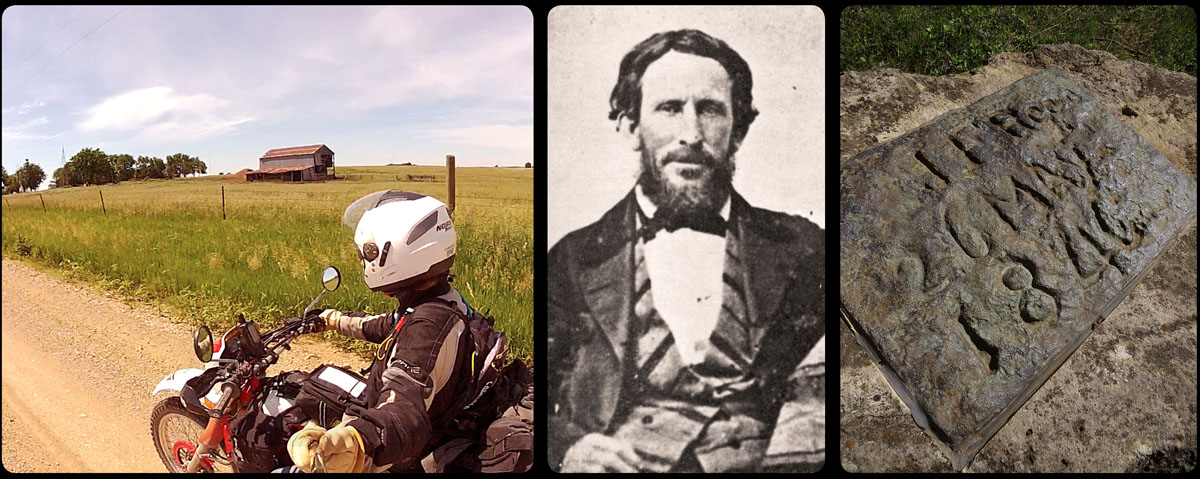Today I was finally able to ride some back roads. And who ever claims that Kansas is flat and boring must forever keep their mouth shut. What a beautiful land! The hills roll in every direction like a massive green carpet. Birds are everywhere. They sometimes pull the most bizarre stunts, right in front of the bike, out of bravery, or pure stupidity. I hold my breath every time this happens, and expect to see an explosion of feathers in one of my mirrors any moment. But somehow these stunt flyers always seem to get away with it.
The gravel roads are completely deserted, apart from a pick-up truck that meets me every once in a while. The driver always wears a baseball cap and without exception raises his hand to greet me. Apart from this rare oncoming traffic, my only other company on the prairie consists of the bike, the cows, the birds and the wind.
This morning I started from Topeka, Kansas. This is where the emigrants crossed the Kansas River. From 1844 on, this was done by ferry, because the river was often too deep and too wild to be crossed with the wagons. No such luxury for the livestock though; they had to swim to the other shore.
When the emigrants arrived at this crossing, they had been on the road for over a week. Everybody in the wagon train had got to know each other a little better, and now it was time to choose a ‘team captain’. This team captain would be the leader of the wagon train for the rest of the journey. He decided where and when the train would rest or spend the night and he decided what to do in special circumstances, when a leader was needed.
Jesse Applegate, who traveled to Oregon in 1843, described how a team captain was chosen. The candidates walked onto the prairie, and everybody walked behind his or her favorite candidate. The person who had collected the longest row would become the leader of the train.
When the emigrants traveled north of Topeka, they entered the territory of the Pawnee, and it was not unusual that every now and then horses would be stolen by these Indians. The Pawnee sometimes demanded horses or cattle for passing on their lands. Stubborn emigrants who refused to pay this ‘toll’ were often relieved of their stock at night. So to prevent cattle theft, a night guard was installed. But being alone on the dark prairie night, rookie night guards would often see shadows that weren’t there, and every now and then a cow or a mule was accidentally shot, just for being a little restless at night.
Today, at the end of a very hot day, I visited Alcove Spring. It’s a place that was often mentioned in emigrant diaries.
Not far from the spring was the crossing of the Big Blue River. It sometimes took a while before the river was low enough to cross. Until then, emigrants camped a few days around Alcove Spring. At this nice, shady spot under the trees, a lot of emigrants left their names in the stones next to the little stream. One of them was James Frazier Reed, who traveled in the Donner party: a group of emigrants on their way to California.
After James scratched his name in the rock, his company met with a lot of bad luck. They were late and snow in the Sierra Nevada was early in 1846. The Donner party was forced to stay in the mountains that winter, and things got so bad that some of the survivors ate the unfortunate companions that had already starved to death.
Only 45 people managed to survive this harsh winter. James Reed, who left his name here in Alcove Spring, was one of them. He would eventually settle in California.

